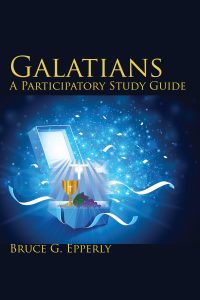Brannon Howse Quotes an Etymological Fallacy
Well, not a terrible one, at least not in the quoted material, which is from John MacArthur. But Howse makes an even bigger error. He first quotes Romans 16:17-18:
Now I urge you, brethren, note those who cause divisions and offenses, contrary to the doctrine which you learned, and avoid them. For those who are such do not serve our Lord Jesus Christ, but their own belly, and by smooth words and flattering speech deceive the hearts of the simple. [as quoted in referenced article, emphasis his]
In commenting, he then quotes John MacArthur:
The little word simple of the Hebrew language is real concrete, not abstract like Greek. Simple comes from a root word that means an open door. And a simple-minded person was somebody whose mind was always open… the simpleton was the person who had not enough discernment or discrimination or knowledge or understanding or wisdom to know what to accept and what to reject. And the Word of God will teach you how to close the door. It will teach you how to be wise. Wise is chakam in Hebrew, it means skilled in all aspects of living. [Howse’s source: John MacArthur, The Nature and Sufficiency of Scripture: http://www.gty.org/Resources/Sermons/GTY111_The-Nature-and-Sufficiency-of-Scripture?q=simpleton]
Do you notice the interesting error there? Howse quotes Romans, written in Greek, and then quotes John MacArthur, commenting on a Hebrews word. Now while I don’t think MacArthur’s definition of the Hebrew word is too bad (and he gives the actual reference, Psalms 19:8 [7 Heb], from which one can discover the intended word, pethiy), I still think demonstrating it from the etymology in this case is not the best plan. The word can be studied quite well by usage as it occurs 19 times in Hebrew scripture.
A second issue for me would be whether this word is indeed more concrete than the Greek word used in Romans 16:18, akakõn. That seems plenty concrete to me. But of course, John MacArthur made no reference to Romans 16:18. He was dealing with Psalm 19:8, so we don’t know that MacArthur thinks pethiy is more concrete than akakõn.
Howse, on the other hand, borrowed the etymology of a Hebrew word in order to apply it to a Greek passage. I’m not concerned with whether you agree with Howse’s position on the major topic. The problem here is demonstrating a lack of good procedure and knowledge in applying biblical languages.


